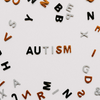Top 10 Tips to Support Autism Families During the Pandemic

1. Routines: maintain the old, create the new
This is the time to maintain usual routines as much as possible, supplemented by new ones created, so your child’s day has structure. Even though usual schedules have been disrupted, there are other daily rituals you can stick to.
Get yourself and your children up at regular times each morning, even though they are not at school, and you may not be at work. Get out of PJs and into regular clothes right after breakfast. Take a shower. Keep up your hygiene routines.
Consider playing music to help start the morning. If you have Alexa, ask her to play “Good Morning.” You should get a fun, child-friendly, call-and-response song (try it yourself first to be sure you get the right song).
Do schoolwork in the morning when your child is fresh. Give breaks, including breaks for alone time. Have lunch together at regular times each day. Afternoons can be times for your child to read, draw, explore the internet (suggestions provided below), or do small projects with you or siblings.
If your child usually goes to a workshop or other day program, try to incorporate some of his/her usual activities at that site into each day. For example, if your child was learning to fold laundry there, that can be done at home too.
2. Minimize surprises
This is a time of great uncertainty. Do not add to it by throwing surprises at your kids. Surprises scare. They are hard for kids on the spectrum under any circumstances, but they’re especially tough when stress levels are already high. For example, if you have to leave the house, give everyone advance notice. If you are getting more deliveries than usual, let the kids know when you’re expecting them.
3. Offer simple explanations
Tailor explanations to the needs of your child. Don’t let your anxiety drive how much you share. If a child doesn’t seem anxious, you don’t have to explain about the virus. If he/she has questions, answer them honestly, directly, and without elaboration. You can ask your child if he/she has other questions instead of assuming more information is needed. Keep your explanations appropriate to the child’s age and ability to comprehend.
4. Practice good self-care
Your child will pick up on your mood and stress level. Monitor both and take steps to stay focused, positive, and productive. The most basic stress reducer is taking several deep belly breaths at regular intervals during the day. You can set your phone alarm to remind you to do this every hour. Regular stretches are also helpful. You can take free yoga classes online.
Try to eat healthy without too many carbs and sugars, and don’t let yourself develop new patterns of alcohol use.
5. Plan each day and use a simple schedule
Replace disrupted routines with new ones. Write out a simple schedule for everyone to see and put it in a highly trafficked area of the house. Include getting up, having breakfast, morning activities and breaks, lunch, afternoon activities and breaks, dinner, evening activities, downtime, and bedtime. Gear it to your child’s age—the younger, the simpler.
Consider specifying TV, movie, and online time. If your child is into video games, he/she may want to spend all day playing them. If he/she wants to be online, there are lots of other options. Zoom chats are fine. Online schoolwork or anything where your child is learning is not “screen time.” See the end of this post for a list of options and links to websites with fun activities.
Try to get your kids outside for at least part of the day. They can still take walks or ride their bikes. Take them on a “search mission.” Write down things you think they will see during your walk and have them check them off. If you’re in a city, maybe you write down “store, garbage can, stoplight,” things like that. If you live in the country, take a walk in the woods and try to find things like “bird, insect, bush, rock.”
Dogs think they’ve died and gone to heaven during this time! Let your kid join you in walking the dog. Consider teaching other pet care tasks now, like grooming and feeding.
Evenings are times for family dinners and shared clean up. You can designate one evening a week for TV or movie night. Each family member gets to select the movie (or maybe two episodes of a TV series) for everyone to watch. Parents will have to endure some Disney movies and make choices appropriate for kids to watch. When your kids get to choose, they practice empathy and turn-taking by figuring out what other family members might enjoy too.
6. Reach out to others to keep your kids connected
Your family still needs to communicate with others, just from a distance. You can call relatives and friends, or use any of the online forums for sharing audio or video connections. FaceTime, Skype, and Zoom are the most common platforms people are using. If your kid is into computers, let him/her learn how to use these apps, and then let him/her teach you. Your kids can visit with their friends or relatives, and even play games over Zoom or the other platforms.
If you have neighbors, you can still talk to them from a distance of seven feet or more. You can even have lunch “together” if each family brings their own food and drink, and you sit far enough apart, preferably outside, or in a room where there is good ventilation.
7. Beware of sensory assaults
If you are using hand sanitizer, Lysol, bleach, or other cleaning products more than usual, you could be creating discomfort for your child. Keep rooms aired out as much as possible. Use masking scents if they help. Some kids, for example, love the smell of a little vanilla on a cotton ball. They can keep these in their pockets to sniff as needed. It has a calming effect on many children.
You can also teach children about spices and flavors by doing “sniff experiments” to determine favorites. Just keep the sniffs small, not peppery, and not too close. Some kids love this exercise. If your kid is a compulsive sniffer, this might help channel the obsession into a productive interest in food or cooking, or it could reinforce inappropriate, generalized sniffing. You know your child, so use your judgment.
The thing that helps kids the most is to have some control over sensory input. For example, let them take the cap off the hand sanitizer and put it back on after you’ve used it. Let them plug in the vacuum cleaner. Having control of some steps helps desensitize kids.
8. Limit stress exposure
Don’t have the TV news on constantly. Don’t spend all day on your computer compulsively checking the news. Don’t let your kids do it either. Be mindful of conversations your children overhear. If you need to vent your stress or anxiety, do it out of earshot of vulnerable children.
9. Increase calming exercises
You already know what calms your child. Use these strategies proactively during this period. Don’t wait for a meltdown. Schedule calming activities each day and put them on the calendar. Examples might include deep massage, music, stretching, or playing with a favorite toy.
10. Show your kids positive images
Find positive images and stories to share with your child. This is easy to look up using Google. There are many examples of people helping each other through this difficult time. Find them and share them. Consider creating some yourself. For instance, you and your child can write notes or draw pictures for relatives or friends.
You Need A Plan in Case You Become Sick
While you might want to avoid this, you need to make a plan now in case you become ill.
You need to know who would care for your children and how your children would get into their care. Talk now to the person you would want to watch your children if you are suddenly unable. Make a list of what items your child would want or need to take if he/she had to go to someone else’s house. Would he/she have to take any specific food items? Medicines? Give the person a copy of the list now.
Write up an agreement and email it to this person now. Have the person send it back to you with a statement that he/she agrees to it. Make sure to date to the agreement. You do not want strangers caring for your children, even for a brief period. This could happen if you were suddenly incapacitated.
Resources for Family Activities
YouTube: Use the search function and find videos related to your child’s special interest (as long as that interest is positive and productive, of course).
Temple’s book Calling All Minds: How to Think and Create Like an Inventor lets your child read about famous inventors and has lots of projects for families. You can order the book or read it online.
https://chatterpack.net Go to their blogs and find: “A list of free, online, boredom-busting resources.”
https://www.northshoremums.com.au/fun-home-activities-with-kids Search for 115 Fun Activities to do at Home with Kids While Self-Isolating.
http://pandemicdistractions.com This includes links to books, art, videos, museums, zoos, exercises, online volunteer projects, and more.
To see how others handle living in a confined space, you can watch the astronauts on the international space station. Your child will learn how important routines are and how vital hygiene and cleaning is. There are lots of videos from the space station out there. Just Google “life on the international space station.”
For kids who love math or computer science, try wolfram.com
For visual thinkers who love science, go to Google and search “protein symmetry” and specifically opt to search images.
Others:
kahnacademy.org. has video lessons for math, art, computer programming, and much more.
https://www.coursera.org/ has classes for older children on all things computer, technical, coding, and more.
code.org has fun projects — 78 million! — grouped by age (usually eight years old and up).
Debra Moore, Ph.D., is a psychologist who worked extensively with children, teens, and adults on the autism spectrum. She facilitates the LinkedIn group Autism Spectrum Across the Lifespan and the Facebook page The Loving Push. Debra contributed two chapters (one co-authored with Dr. Temple Grandin) to The Nine Degrees of Autism (Routledge, 2015). She wrote the chapter Internet and Gaming Addiction in Youth on the Autism Spectrum: A Particularly Vulnerable Population in Internet Addiction in Children and Adolescents (Springer Publishers, 2017). She resides in rural Northern Virginia.
If you found this article helpful, please consider sharing it on social media or linking to it from your website to help other parents. You may also want to check out our other resources on coping strategies for autism and COVID-19.
*This blog post was written by Temple Grandin & Debra Moore and originally appeared on Autism Parenting Magazine.




